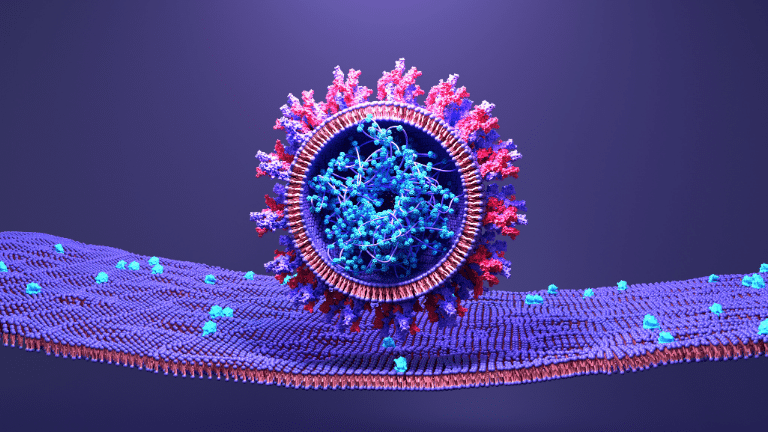
Since the beginning of the COVID-19 pandemic it has been well known that the virus does not affect everyone equally. Reviews of patient data around the world has shown that older people, men and those suffering from chronic lung conditions have worse outcomes and higher mortality rates. A new study may have found one potential reason for why some groups seem to get sicker more than others.

Since the beginning of the COVID-19 pandemic, it has been well known that the virus does not affect everyone equally. Reviews of patient data around the world has shown that older people, men and those suffering from chronic lung conditions have worse outcomes and higher mortality rates. A new study may have found one potential reason for why some groups seem to get sicker more than others.
Professor Peter Wark, a HMRI researcher and senior staff specialist in Respiratory and Sleep Medicine at John Hunter Hospital was the lead author of a study into the expression of a gene in the airway cells of patients which plays a role in COVID-19.
The SARS-CoV-2 virus which causes COVID-19 enters the cells of the respiratory system by using a cell surface receptor called ACE2. The research team, an Australia wide collaboration (Newcastle, Perth, Launceston and Sydney) led by Professor Wark, obtained Airway Epithelial Cells (AEC) from 145 patients in Newcastle and Perth and analysed them to determine the amount of ACE2 gene expression present in the cells. The cohort of patients included people suffering from Asthma and Chronic obstructive pulmonary disease (COPD).
The research team found increased ACE2 gene expression in older people (P = 0.03) and in men (P = 0.03). Recent large studies of COVID-19 patients in the UK have demonstrated that older age, being male and social deprivation were strongly associated with increased mortality. This suggests that increased ACE2 expression in airway cells may allow the virus to more readily spread to the lungs and this leads to more serious COVID-19 infection.
The team also found that ACE2 expression was lower in people with Asthma (P = 0.01) when compared to those suffering COPD and the control group. In the UK study chronic lung diseases, including COPD, were shown to be associated with more deaths from COVID-19 however not in people with Asthma as previously seen with other virus infections such as influenza. Early in the pandemic it was assumed that people with Asthma would be at high risk so their lower expression of ACE2 may explain why they were unexpectedly not overrepresented in COVID-19 infection complications.
Professor Wark says the study identifies an additional reason why those with older age and males are at risk and confirms the need to prioritise them with vaccines. It also identifies that manipulating the level of ACE2 expression in the lower respiratory tract could be a potential therapeutic option to fight COVID-19.
The full paper is available now in the journal Respirology
HMRI would like to acknowledge the Traditional Custodians of the land on which we work and live, the Awabakal and Worimi peoples, and pay our respects to Elders past and present. We recognise and respect their cultural heritage and beliefs and their continued connection to their land.

Hunter Medical Research Institute
We’re taking healthy further.
Locked Bag 1000
New Lambton
NSW, Australia, 2305



This site is protected by reCAPTCHA and the Google Privacy Policy and Terms of Service apply.
Copyright © 2024 Hunter Medical Research Institute | ABN: 27 081 436 919
Site by Marlin Communications
